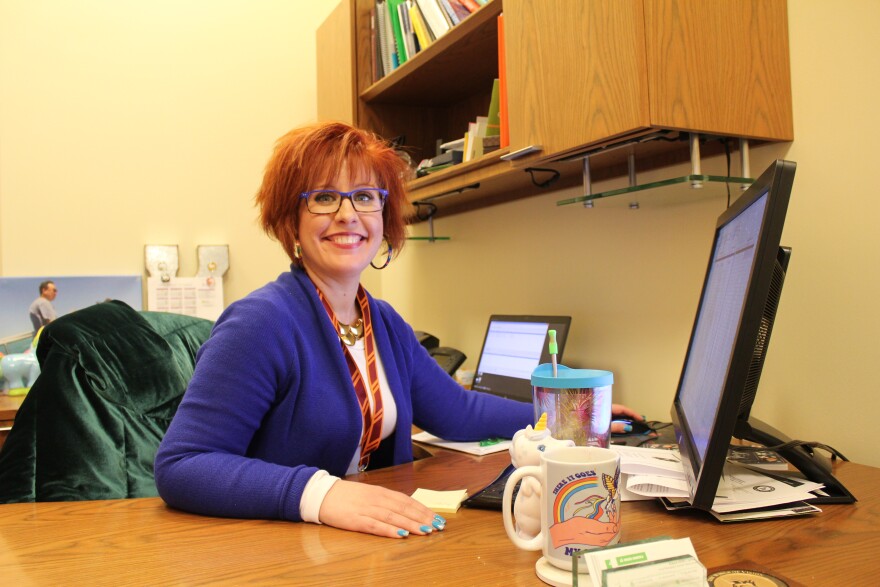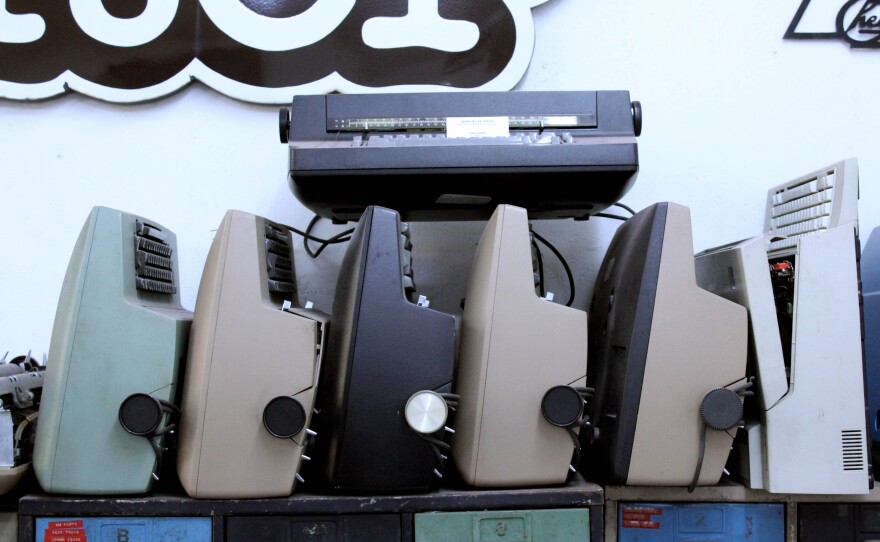On this episode of The Range, we meet one of the last of an increasingly rare breed: the typewriter repairman. (Remember typewriters?)
Plus, we talk about the taboo topic of money: The persistent wage gap in the U.S. means women lose thousands of dollars over their careers compared to men; it’s worse for many women of color, and it's particularly bad in Wichita. Carla Eckels talks to HR specialist Kara Hunt about why we need to — and how we can — close the wage gap. You can read highlights from their interview below.
Also, there’s another setback for Boeing (and for its main supplier, Spirit AeroSystems), a new tenant for Wichita State’s Innovation Campus, and one more place you can get your Freddy’s fry sauce fix.
Interview highlights
Carla Eckels: On average, women in the U.S. are paid only 82 cents for every dollar paid to men, and the gap widens for most women of color. What did the numbers look like in Kansas and in Wichita?
Kara Hunt: We actually have gone up a little bit over the last year, which I’m very pleased about. Currently women (in Kansas) make 79 cents per dollar, and Kansas ranks 36th, which is up from 77 cents and 42nd last year.

So what does that mean in the overall scheme of things when you look at the fact that it’s still close to the national average?
Right, correct. We still have a long way to go but I’m pleased to hear we’re making some progress. Initially when James Chung came, which is actually what got me started about this, I was very concerned about recruitment and retention. Obviously that’s my day job. This project for me is a volunteer passion but it was something that I saw we needed help with and so I decided to start working on that.
What is the long-term impact on women in terms of the gap itself?
That’s very shocking when I started looking at that. The [National Women's Law Center] looked at over a 40 year career, overall, women could lose about $400,000 compared to men. When you start looking and breaking that out, black women could lose about $946,000 and Latina women could lose over a million dollars compared to men, so a significant cost of a 40-year career. And so that’s why it’s not just an issue for women, it's an economic issue for women, families, as well as for our community. I think in the Chung Report it looked at our economy as losing about $170 million by this wage gap.
We are exporting a lot of our talent ... and I felt that salary and negotiation was an area that could hopefully help start closing this gap. If we started providing training to women ... then we could hopefully retain and attract some of this talent so that stop losing it to other cities.
I’m curious too, I’m just thinking about somebody saying, "Well, you know, I’ve thought about asking, or I’ve asked and it didn’t work out for me." What’s missing when they do go and ask for a raise?
I think when they go ask, it’s an emotional ask versus a data-driven ask, and I think that makes it different. I think if you have all the information in front of you, that’s not a guarantee that you are going to hear a yes, but I think when you go in and you do all your research, it’s a different ask than when you go in and just go, “Well that’s not fair, or I heard somebody else got it, or I want it too!”
I think it’s different than saying, you know, "Here’s all the things I accomplished and here’s how much that moved the needle and here’s what that did for the company and here’s what the research [shows what] my value is in the marketplace." I think it’s a different ask. It may not be that you get money, it may be that you get flex time or you get other things and we talk about that too. There are other things that you can ask for, or if it’s not right now, how to maybe ask for something in the future.
You refer to the Chung Report and one of the things I was reading is Wichita is falling behind and ranks in the bottom 20 percent of similar size cities for wage equity.
We definitely need to do better. ... Wichita has a deficit. They say there should be 4,000 more college-educated women in the workforce for an economy of our size so we have a long way to go to close that gap.






